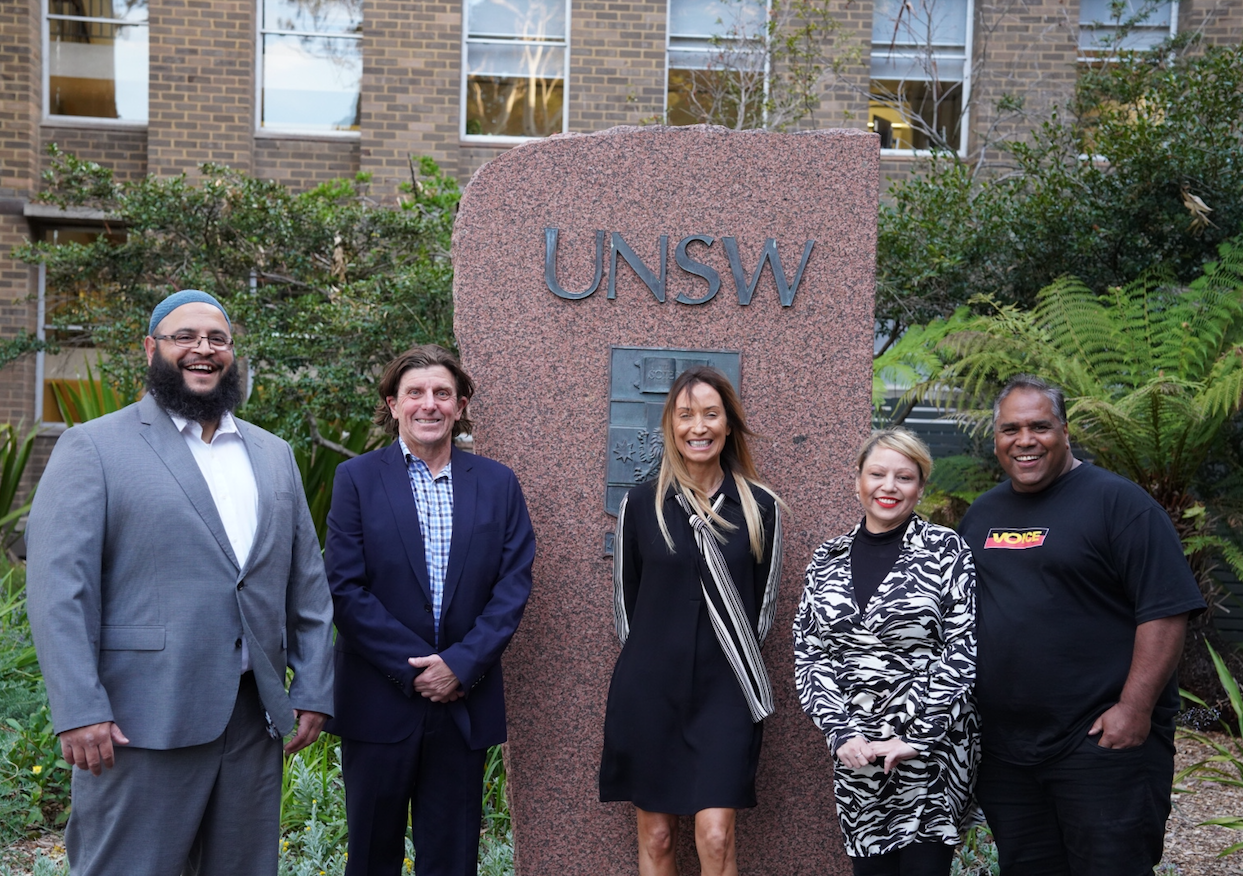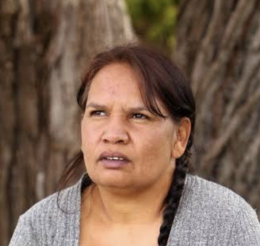2023 Australian Mental Health Prize winners announced
Four outstanding individuals have been recognised for their efforts in dismantling stigma, igniting crucial conversations, and having an impact on mental health.
Four outstanding individuals have been recognised for their efforts in dismantling stigma, igniting crucial conversations, and having an impact on mental health.

The winners of the 2023 Australian Mental Health Prize have been unveiled at UNSW Sydney, celebrating exceptional individuals who have made significant strides in the realm of mental health advocacy.
Presented by the Hon Emma McBride MP, Assistant Minister for Mental Health and Suicide Prevention, the 2023 Australian Mental Health Prize winners are:
Vice-Chancellor and President, Professor Attila Brungs said: "These remarkable individuals have not only inspired us but provided a guiding light for our nation's mental health journey.
“Their unwavering dedication to creating change serves as a testament to the power of resilience, compassion, and innovation in transforming the mental health landscape. We are privileged to honour their exceptional contributions to our society."
Professor Allan Fels AO, past winner, and co-chair of the Australian Mental Health Prize Advisory Group said: “These remarkable winners epitomise community leadership and resilience, channelling their personal experiences into transformative initiatives. Through their innovative efforts, they've dismantled stigma, ignited crucial conversations, and left an indelible impact on the landscape of mental health.”
A proud Menang woman of the Noongar Nation, Ms Krakouer is a First Nations rights beacon, reshaping laws and advocating for the marginalised.
Ms Krakouer's far-reaching impact is visible across Australia as she passionately advocates at events and in her written work. Especially poignant is her call to action on the devastating rates of First Nations youth suicide, with a staggering 80 percent of Australian child suicides occurring among First Nations children aged 12 and below.

Megan Krakouer. Photo: UNSW.
“I’ve seen too many life support machines turned off young ones before their time! We are not put on this earth to bury our children! We can't ignore the underlying causes: the crushing weight of poverty, the poison of discrimination, and the barriers to education that push these young souls to such desperation,” Ms Krakouer said.
“What's needed is unshakable support systems and taking decisive action. Concrete steps and direct assistance are what’s needed. It's on all of us to step up, shield these vulnerable lives, and nurture them with care and urgency!”
Amidst the disheartening rates of suicide within First Nations communities and the grim conditions at the Banksia Hill Detention Centre, Ms Krakouer, alongside Gerry Georgatos, established the National Suicide Prevention and Trauma Recovery Project. The Project has served as a lifeline to more than 25,000 people, offering direct and comprehensive support ranging from financial assistance to psychosocial counselling.
Ms Krakouer's urgent plea for change resonates as she addresses the root causes – poverty, discrimination, and limited access to education – and emphasises the dire need for robust support systems, psychosocial interventions, and affirmative measures to prevent further loss of life.
A highly regarded consultant cardiologist, Dr Toogood is not only a distinguished medical expert but also an impassioned advocate for mental health awareness.
Triumphing over significant periods of mental illness, Dr Toogood emerged with an unwavering mission: to destigmatise mental health discourse within the medical realm and spotlight the challenges faced by healthcare professionals.
“Within the demanding realm of healthcare, it's vital to recognise that the healers themselves need healing. The weight of their responsibilities can dim their own well-being. By embracing self-care, they not only preserve their own mental health but also enrich the compassion they bring to their patients, fostering a healthcare environment where everyone can truly thrive,” Dr Toogood said.
Rooted in his own experiences, Dr Toogood established the Crazy Socks 4 Docs movement – a resounding campaign aimed at normalising mental health conversations among healthcare practitioners. The movement's cornerstone, Crazysocks4docs Day, observed every first Friday of June, has ignited global recognition and participation.
From his personal recovery journey to his role as a Beyond Blue ambassador, founding his own charity, conquering competitive swimming challenges (including the English Channel and Gibraltor Strait), Dr Toogood’s dedication in dismantling mental health stigmas is a resounding testament to his commitment towards catalysing impactful change.
A proud Euahlayi and Kooma woman, Prof. Toombs has revolutionised mental health and suicide prevention within Indigenous communities and exemplifies the transformative power of culturally attuned practices.
“Through dedicated funding and meaningful action, we can reshape the landscape of Indigenous mental health. By uniting traditional wisdom with modern clinical approaches, we have crafted interventions that resonate with our communities,” Prof. Toombs said.
“Our journey is two-fold: embracing our cultural heritage to heal our past, while securing the resources needed to forge a healthier future. Let's recognise that destigmatising discussions is just the first step; real change requires investing in culturally attuned practices and collaborative care.”
Her research revealing Indigenous adults' 6.7 higher prevalence of common mental disorders underscores the imperative for change. Developing collaborative care models with over 94 Aboriginal and Torres Strait Islander communities, Prof. Toombs exemplifies community-driven solutions.
Prof. Toombs’ globally recognised Indigenous social enterprise suicide intervention training program, I-ASIST, has trained more than 800 Indigenous individuals. Embracing Indigenous perspectives attributing mental health to the spirit, collaborating with healers and psychologists, she paves a new path forward. Advocating practical services, she compels action, highlighting that tangible solutions are key to life-changing transformation.
A prominent young Muslim leader in Australia, Mr Faraj commands respect for his impactful work. As the General Manager Community of the AFL club, GWS Giants, he fosters unity and mental well-being in Western Sydney through diverse initiatives, particularly among youth.
“Football in western Sydney isn't just a game; it's a powerful force that unites diverse people. It nurtures a sense of belonging, crucial for our mental well-being. It's more than players on a field; it's a community supporting one another. In unity, we find strength, and through connection, we find solace,” Mr Faraj said.
Recognised as 'Case Worker of the Year' by the Migration Council Australia in 2015, Mr Faraj's collaborations with schools and government bodies emphasise social cohesion. During the COVID-19 lockdown, his leadership emerged through the GWS Giant Hand initiative, aiding over 15,000 vulnerable families, and supporting their mental well-being.
Mr Faraj's commitment to suicide prevention and mental health is evident through his role as the Board Chairman of Educaid Australia, a leading Mental Health not-for-profit organisation working with culturally and linguistically diverse and faith communities across Australia.
He is an accredited Suicide Intervention trainer and presents often at local and national conferences, including recently being a keynote speaker at the Suicide Prevention Forum in Tasmania.
His presence extends to being an adolescent expert featuring on national TV on the ABC show Old People's Home for Teenagers, embodying his dedication to combating loneliness and depression across generations.